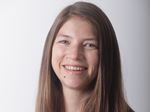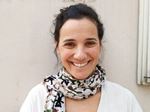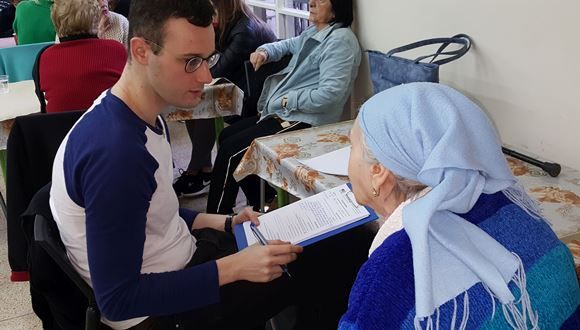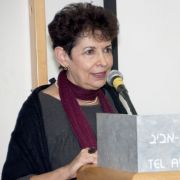For Holocaust Survivors, TAU Clinic Is a Lifeline
Yaacov* is a Holocaust survivor in his eighties. He lived in mental health institutions all of his adult life, telling the story of his excruciating persecution by the Nazis in the Bialystok ghetto. Yet the Israeli authorities didn’t recognize him as a Holocaust survivor and he did not receive much-needed financial benefits.
His life changed when lawyers and students from Tel Aviv University intervened.
"It's one the most mind-blowing cases we've encountered," said lawyer and social worker Yael Havassy-Aharoni, co-director of the Clinic for the Rights of Holocaust Survivors and the Elderly at TAU’s Buchmann Faculty of Law.  It’s very rare for the government not to recognize a survivor like Yaacov, she explained. Because he suffered from mental health problems, people thought he had fabricated his war-time experiences. Once they realized the authorities had failed him, students and staff at the clinic searched for proof of his life in the ghetto. “We discovered forms filled in by his mother at the displaced persons camps in Germany,” said Havassy-Aharoni.
It’s very rare for the government not to recognize a survivor like Yaacov, she explained. Because he suffered from mental health problems, people thought he had fabricated his war-time experiences. Once they realized the authorities had failed him, students and staff at the clinic searched for proof of his life in the ghetto. “We discovered forms filled in by his mother at the displaced persons camps in Germany,” said Havassy-Aharoni.
Yael Havassy-Aharoni
"We also located his long-lost relative whom he thought was dead."
The TAU team’s efforts earned him the recognition which had evaded him all his life: he received a NIS 25,000 ($7,227) stipend and a NIS 1,000 ($289) monthly allowance, enhancing his standard of living significantly.
Helping destitute survivors like Yaacov is the goal of the clinic, founded in 2010 as the first organization to provide Holocaust survivors with free legal representation and consultation.
Today, the government has established a parallel service, but TAU’s clinic continues to assist survivors with services not provided by the state, such as representation at medical committees, explained the clinic's co-director, lawyer Liad Strulov. Liad Strulov
Much of the clinic’s legal work is performed by second and third year law students. Their practical work at the clinic is combined with a course on the elderly and the law, with emphasis on the evolution of Holocaust survivor compensation legislation and rights in Israel. Currently, funding for the clinic comes from private sources.
The Holocaust clinic is one of seven at the Buchmann Faculty's Elga Cegla Clinical Law Program, each focusing on a different topic. Beyond the academic credit they earn for their participation in the clinics, students are eager for the opportunity to gain practical work experience and give back to the community. The clinics attract more students than they can accept.
TAU alumna Rotem Avigdor, now a lawyer, participated in the Holocaust clinic in 2015-2016. She signed up because she saw how difficult it was for her grandmother, a Holocaust survivor, to obtain all of the benefits to which she was entitled.
Avigdor worked on the case of Hannah*, a survivor who hid in orphanages and convents as a toddler in France after the Nazis sent her mother to Auschwitz.

She has long suffered from health issues including acute rheumatoid arthritis. After the State refused her requests for compensation, the Clinic appealed her case. After two years, her illness was recognized and her compensation increased dramatically, allowing her to pay for medical treatment.
Rotem Avigdor. Photo: Tomer Yaacobson
"Not all survivors have family to help them with bureaucracy and apply for the benefits due to them," says Avigdor, "After all they've been through, it's the least we can do to help them."
According to Israel's Central Bureau of Statistics 193,800 Holocaust survivors living in Israel at the end of 2019 were recognized by the Finance Ministry’s Holocaust Survivor Rights Authority and were eligible for monthly allowances. Yet, not all of them are able to maximize their benefits and fully realize their rights.
Hava Ferber, a fourth year law student, took part in the clinic last year. "All my grandparents are Holocaust survivors so this subject runs in my veins."
 She worked on a case that aimed to facilitate compensation for survivors from newly recognized ghettos, such as the one in Sofia, Bulgaria. Although the Holocaust Survivor Rights Authority had contacted the survivors in question, the guidelines for claiming the compensation were unclear. Hava Ferber
She worked on a case that aimed to facilitate compensation for survivors from newly recognized ghettos, such as the one in Sofia, Bulgaria. Although the Holocaust Survivor Rights Authority had contacted the survivors in question, the guidelines for claiming the compensation were unclear. Hava Ferber
The clinic petitioned the Court, and the guidelines were revised. The end result was that the relevant survivors could collect much needed financial assistance.
Ultimately, the clinic’s value is its ability to draw on individual cases to redress a wider injustice. In this way, TAU can improve the lives of many survivors. "We come into play by actively striving to reform laws and policies,” said co-director Strulov. “It makes our purpose bigger than just the one-on-one help we offer."
*Pseudonyms






